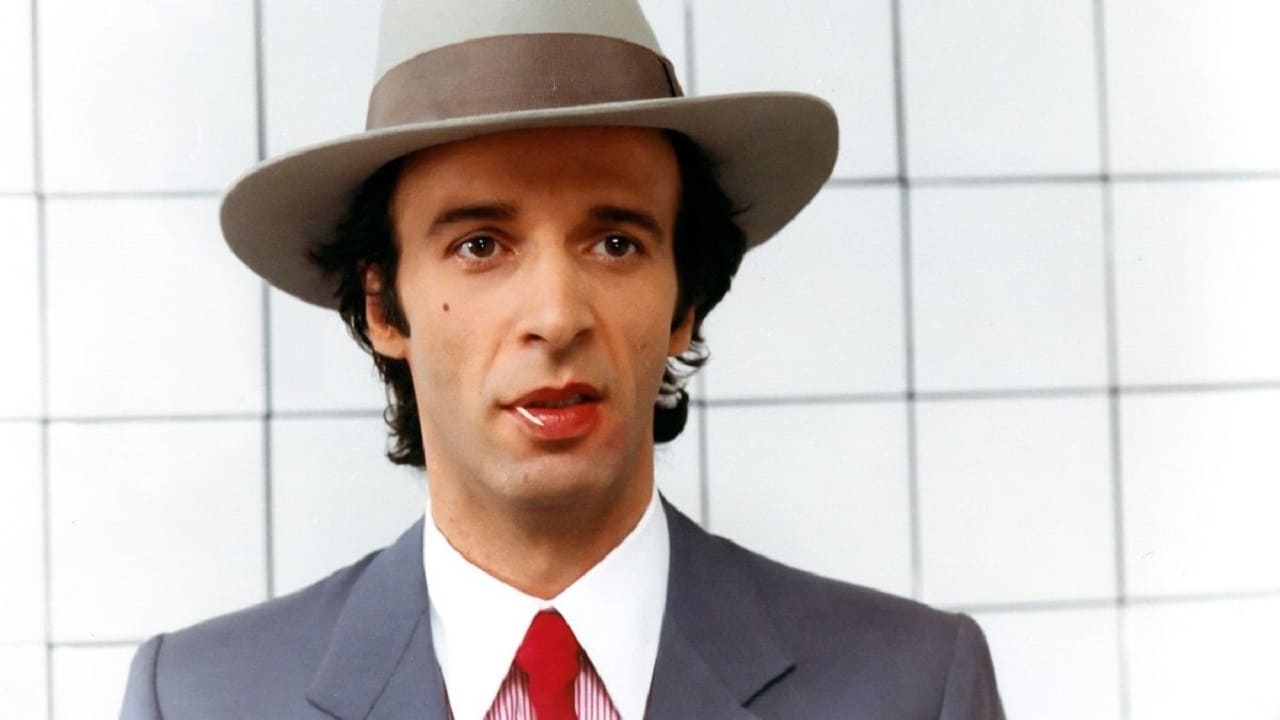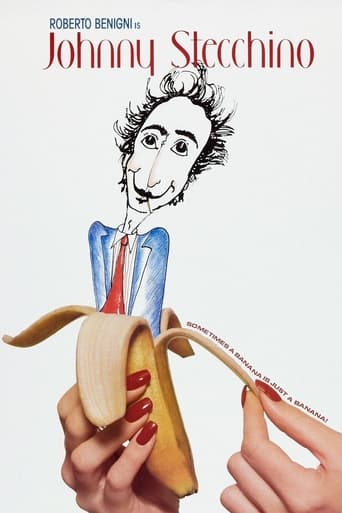

Why so much hype?
... View MoreI like Black Panther, but I didn't like this movie.
... View Morei know i wasted 90 mins of my life.
... View MoreThis story has more twists and turns than a second-rate soap opera.
... View MoreYes Bengini is a master of comic timing and plasticity. And the script is a fantastic use of the comedy of double-entendre. But as a Sicilian friend has pointed out, the late 1980's-early 90's was a time of unparalleled violence and legal action against the Mafia, a time when the population was enveloped in fear with reports of killings almost a daily occurrence. In the context of this earlier film, , Begnini's portrayal of concentration camps in Mussolini's Italy in "Life is Beautiful" acquires the weight of Chaplin's "Great Dictator." Fear loses some of its grasp when evildoers become the butt of comedy.
... View MoreJohnny Stecchino review by Jeremy LawrenceJohnny Stecchino is a delightfully funny piece of Italian film history, with flamboyant characters and American influences derived from such roots as Charlie Chaplin, Buster Keatan and Woodie Allen. Although the jokes, for the most part are derived from Italian culture, their routes display common beliefs and experiences of all cultures. They play on the stereotypes of Italian culture perceived by the rest of the world. The main character Dante, played by Benigni, has a comedic and arrogant personality. He miraculously finds himself repeatedly in life threatening situations. However, he some how manages to get himself out unscathed, and due to his character the audience cannot help but laugh at his arrogance. This film displays master comedic work and the work of a brilliant framer using every inch of his presidium arch to set up and deliver the plethora of gags. Throughout the film each gag is set up primarily by setting a visual mood that allows the viewer to not only feel the joke at hand but also to live the joke. This allows the joke to run deeper into the viewer's knowledge and belief system. For instance, in the film Dante is preparing to snort a line of cocaine. Almost everyone on earth, who has watched films or television, knows what the white powder is and how the drug is used. In the stories, when Dante does not know what the powder is his uncle tells him that the powder is a drug to cure his diabetes. Through the film this knowledge is tested and the main character tries to pass the drug off as a cure for diabetes. Another of the new techniques used was that of editing as well as visuals to develop the 4 D's (Desire, Deception, Discovery, and destiny) of a traditional comedic structure to develop the comedic persona of all the gags and to tie all them together. In doing this Benigni used many traditional techniques of cross cutting and of cutting to show the action, not cutting to develop the act. Actually Benigni uses the long take, which, according to Charlie Chaplin are the way comedies are suppose to be shot, for example a shot that would normally be inter cut with close ups, such as the car in reverse gag. In the frame, Dante enters his bus and the audience is led to think that he will back up. As he turns to look at the camera in order to back up, the foliage can be scene through the window pressed closer to the camera. This makes it obvious that he is actually driving forward and not backing out and in the same shot Dante's expression draws us to his gaze without rack focusing (rabidly changing focus from one object to another). All of the visual and dialectical techniques demonstrate the comedic genius of Benigni. Although the jokes are not universal to all cultures, Benigni creates a mood of light comedy and intellectual triumph which in part explains the success of Johnny Stecchino.
... View MoreThis is a top-class comic story, and my favorite Roberto Benigni movie. The characters and situations work absolutely wonderfully, and I love the interaction and the plot twists in this story.(Spoiler warning)My favorite segment is the banana sequence (and no, it's not what you would expect with a banana sequence). The classic "double think" as the situation develops, the differing points of view of the various characters involved, and the way the whole sequence escalates is totally brilliant in its execution.For any comedy fan, this one is a must-see!
... View More7/10 I thoroughly recommend this film. Some jokes may go over the head of non-Italian speakers but it shouldn't really ruin your enjoyment of a classic Benigni film. My favourite scene was when "lo zio" (the uncle) was driving Dante back from Palermo train station and explaining the problems of Sicilian life to him - I nearly p*****d myself!
... View More